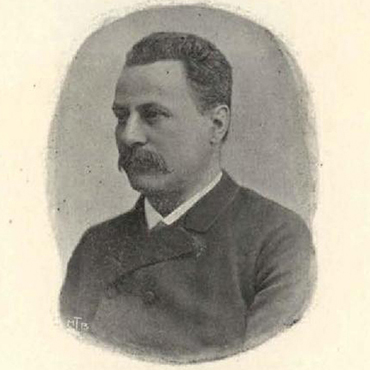A cousin of Ferdinando Martini, he was born in Florence in 1842 and started his studies with the Piarist fathers of San Giovannino, with Enrico Marchiò, Eugenio Barsanti, Giovanni Antonelli and Filippo Cecchi as teachers. He did not follow a regular course of studies, but attended as a self-taught person the physics and chemistry laboratories of Emilio Bechi and Tommaso Del Beccaro. On account of this, he managed to be admitted as a student of physics at the Istituto di studi superiori in Florence, under the guidance of Pietro Blaserna and subsequently Luigi Magrini, who made Martini his assistant.
Having been encouraged by Carlo Matteucci to leave Florence, he accepted the post of interim teacher of physics at the high school in Palermo, where he worked again with Blaserna and also with Stanislao Cannizzaro. However, he felt too far away from his native city, and so he accepted the position of permanent teacher at the Liceo Marco Foscarini in Venice, a city where he made his second home.
He moved on to teaching the first stages of mathematics and commercial and financial arithmetic at the Scuola Superiore di Commercio, where he was to remain for more than forty years. He became interested in acoustics, molecular physics, and also in the history of the experimental method, an interest he shared with Raffaello Caverni, a friend from his schooldays. He often acted as an intermediary between Caverni and the Istituto veneto di scienze, lettere ed arti, of which he was a member, especially in order to sort out the disputes that arose during the printing of the Storia del metodo sperimentale in Italia. He died in Venice in 1912.

